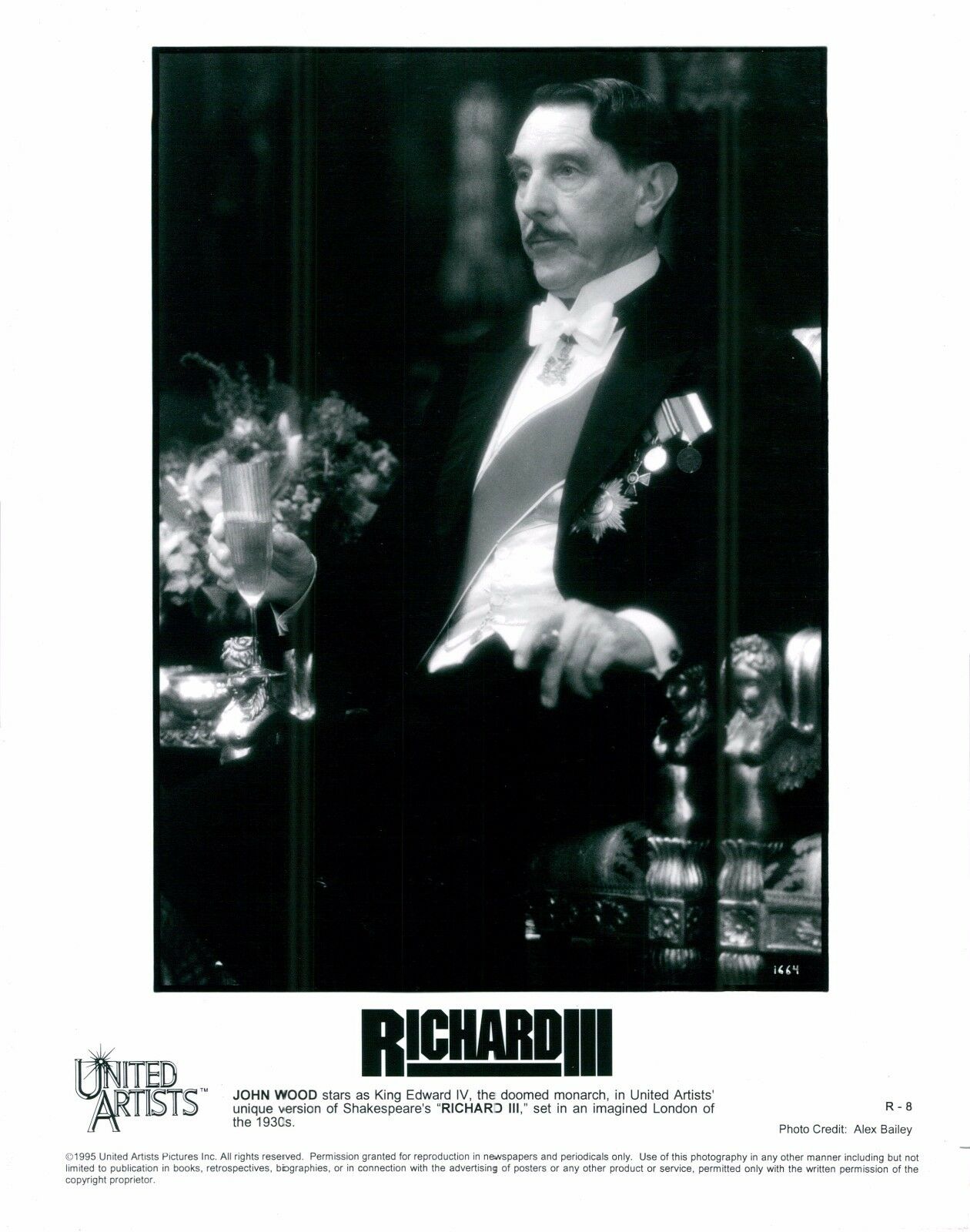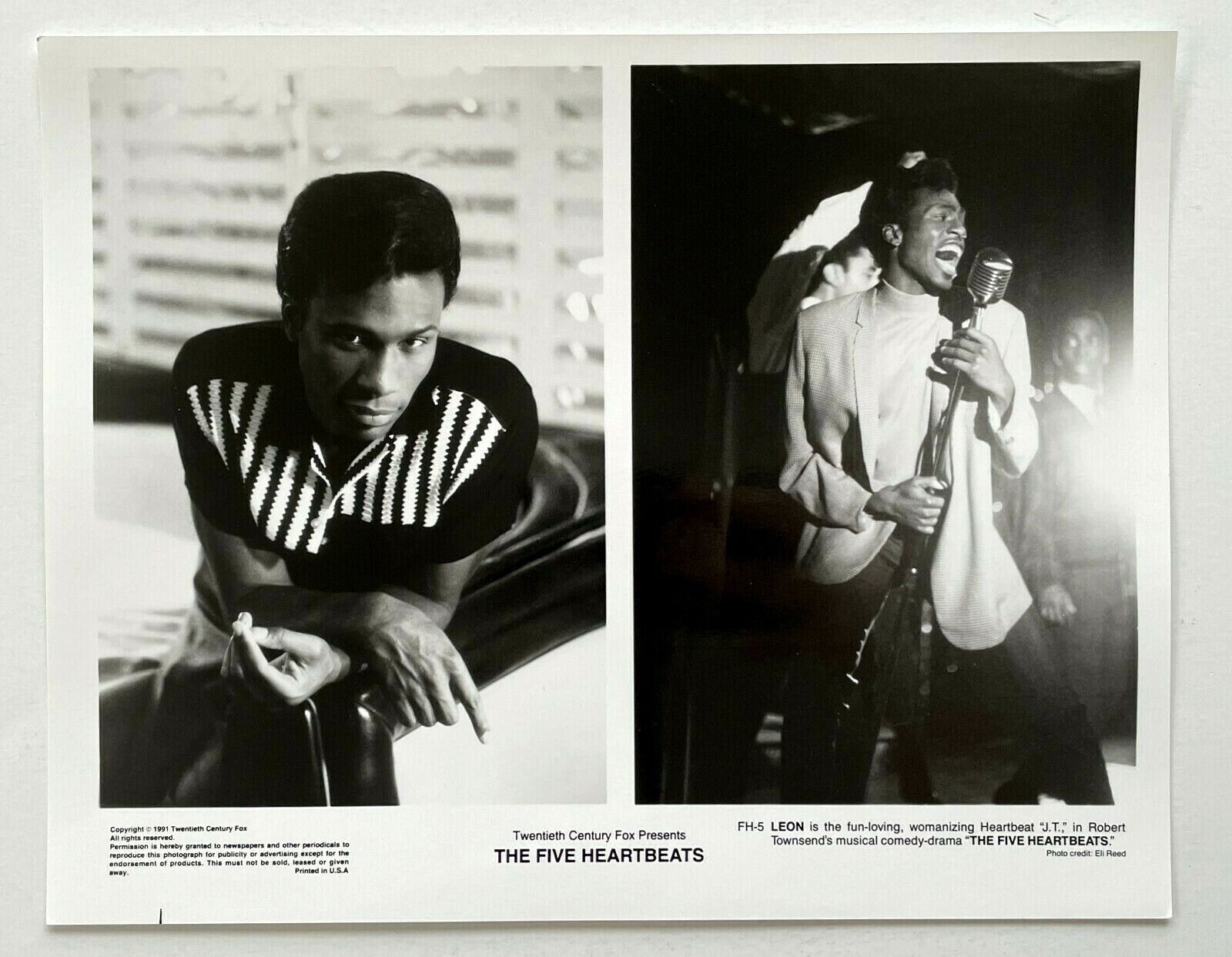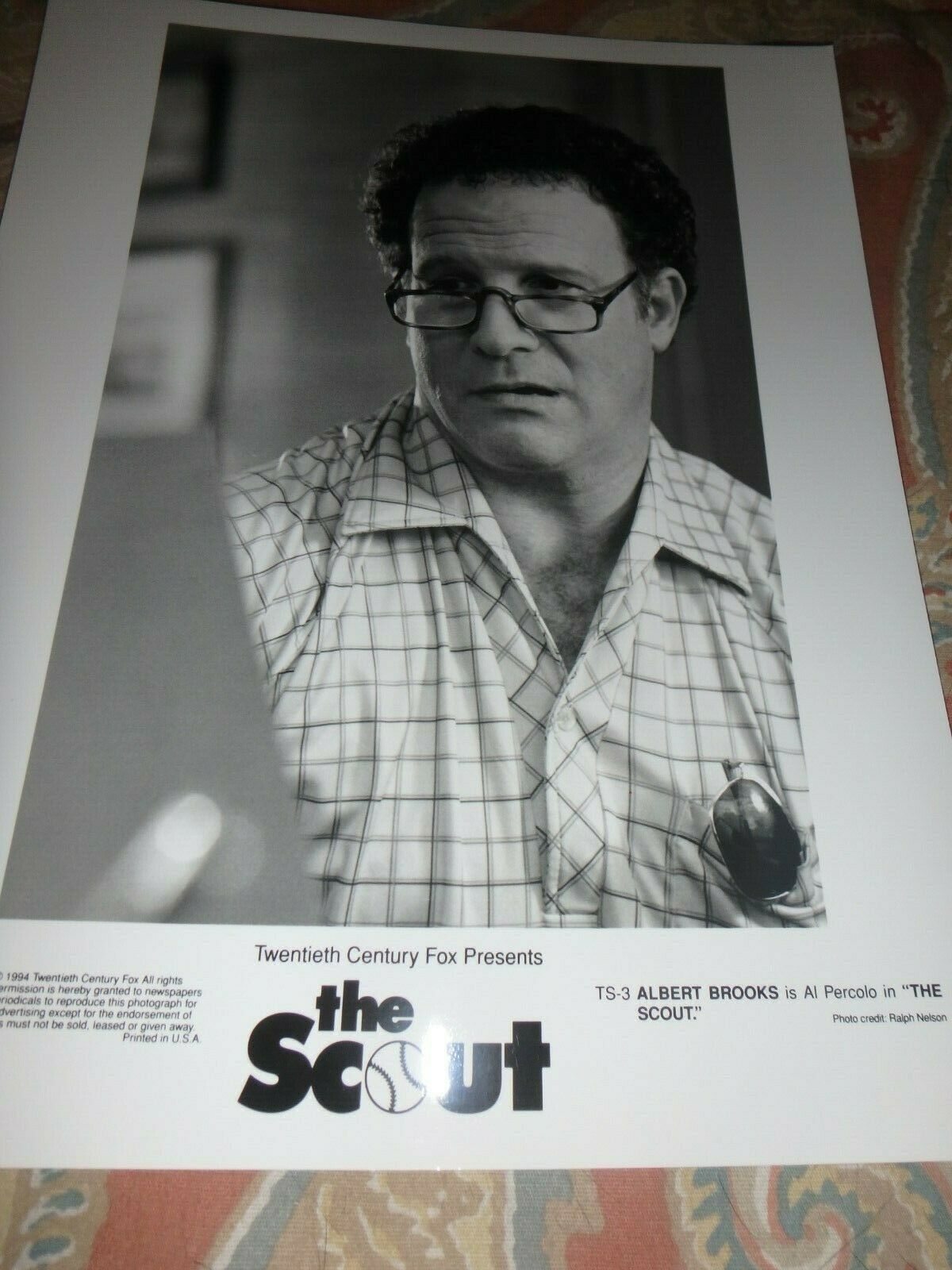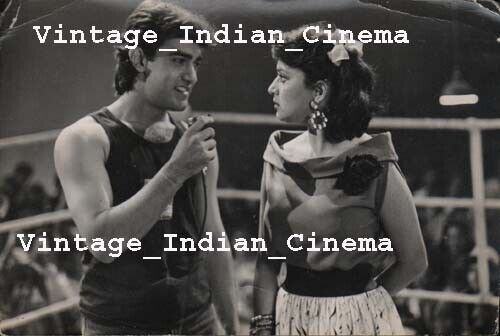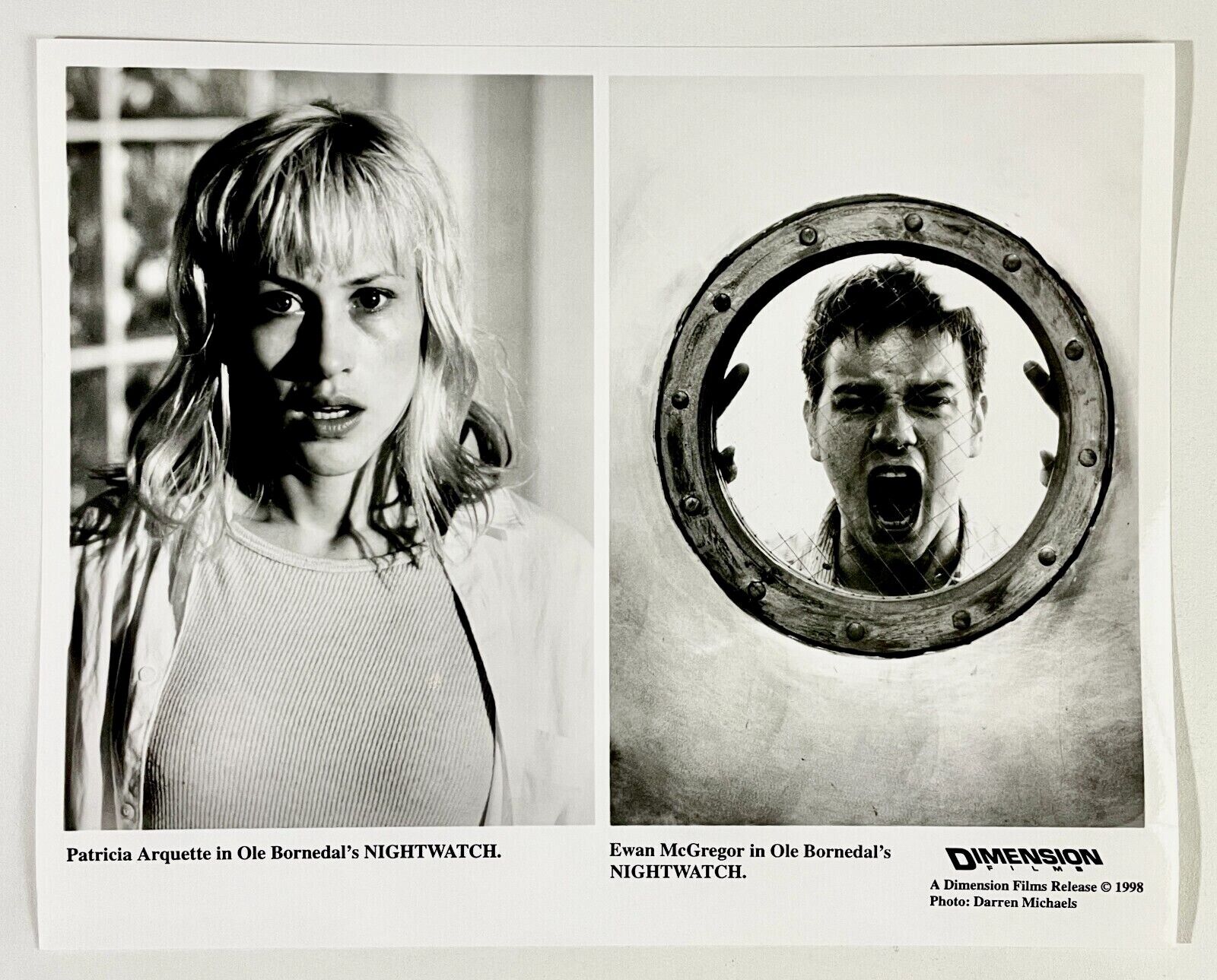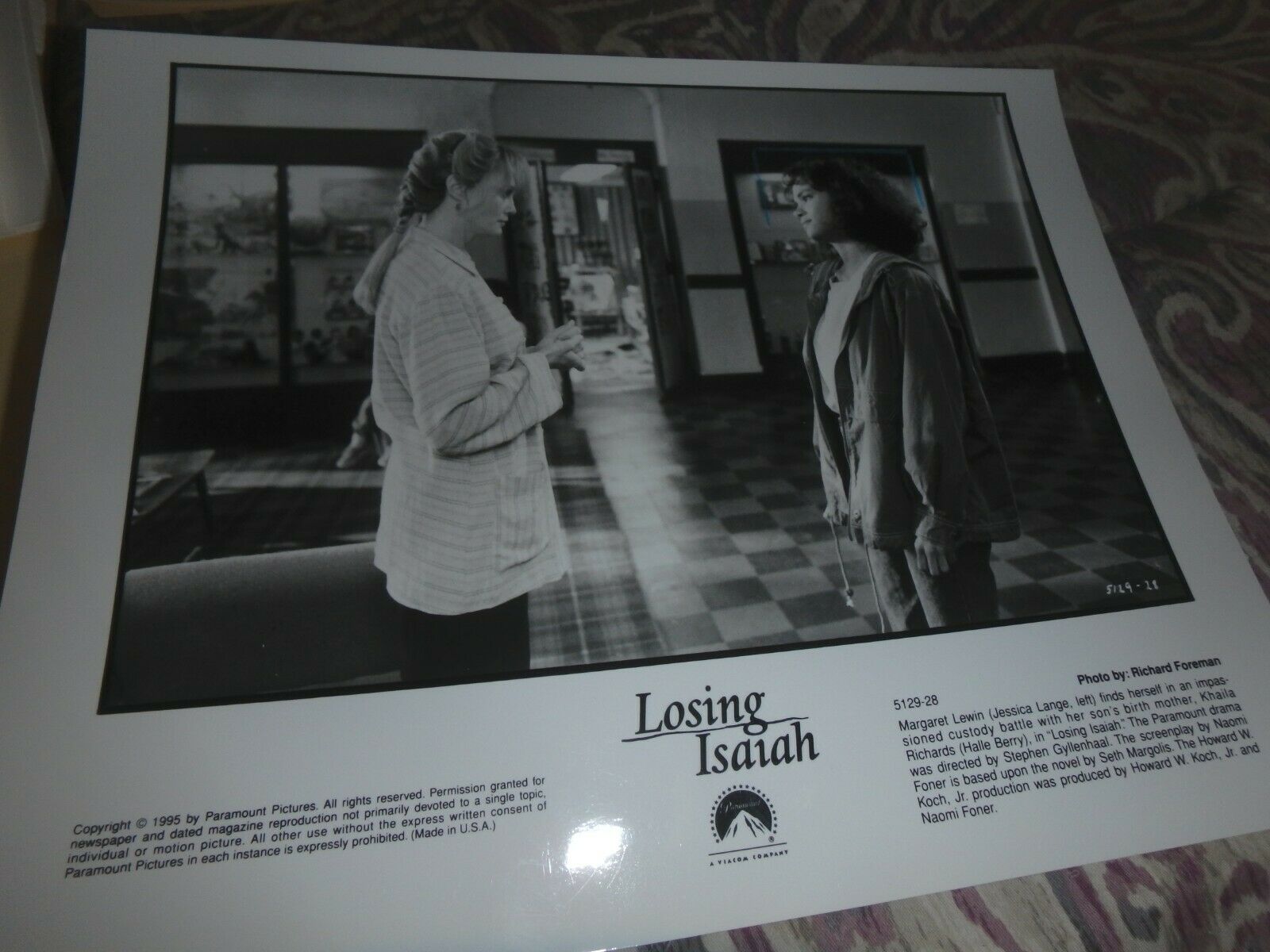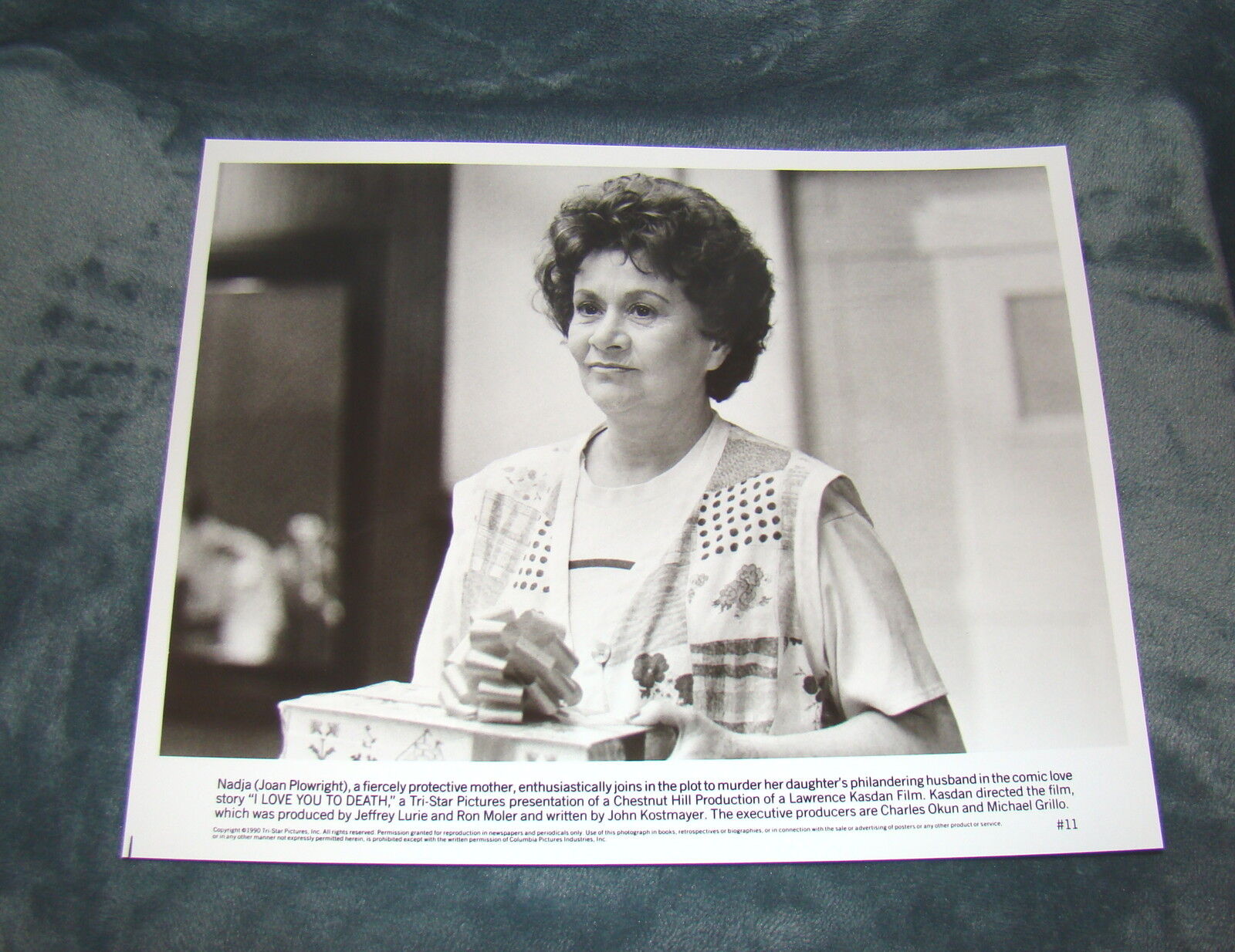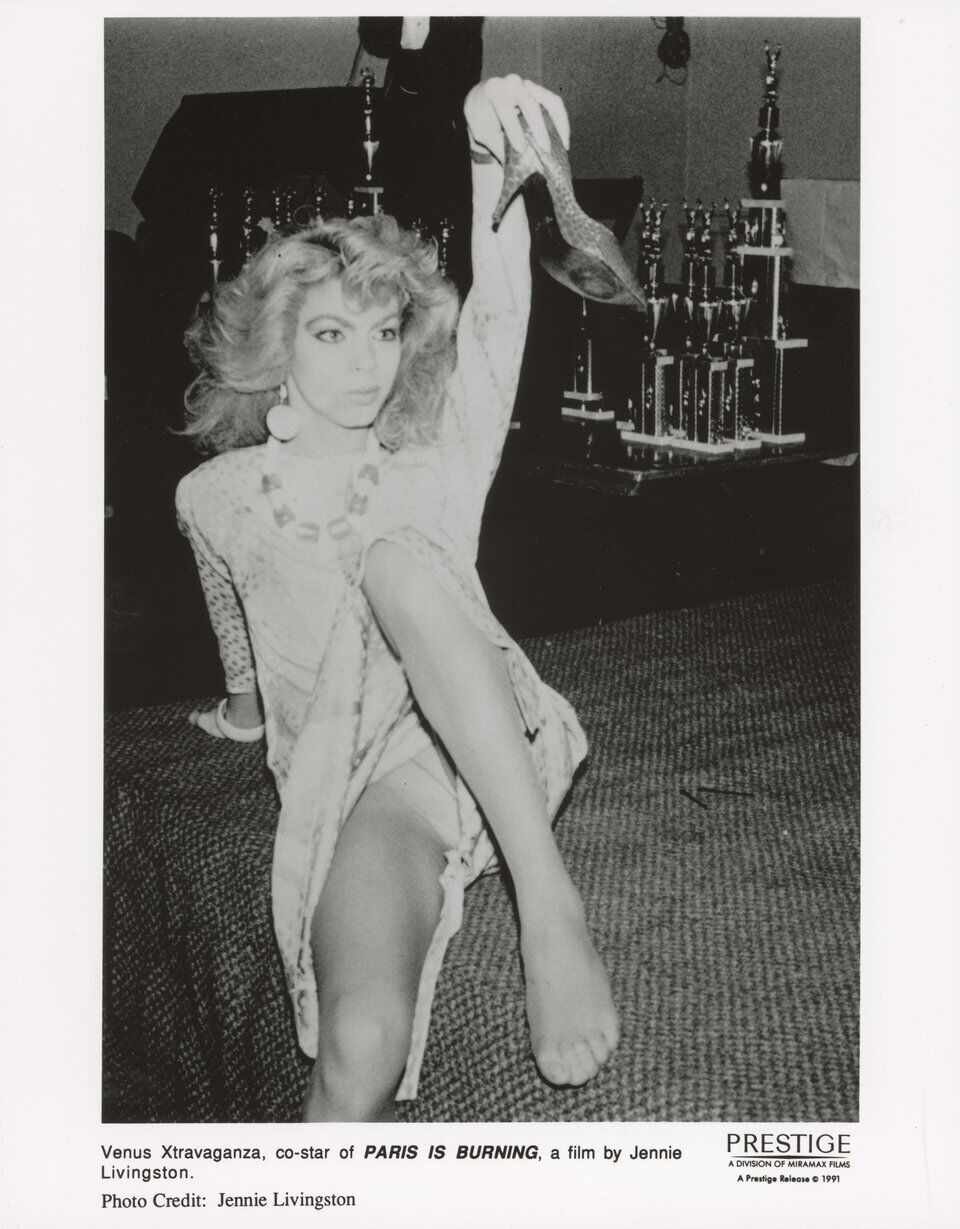-40%
Lot of 4, Robert De Niro Dustin Hoffman stills WAG THE DOG (1997) Barry Levinson
$ 4.21
- Description
- Size Guide
Description
(They ALL look MUCH better than these pictures above. The circle with the words, “scanned for eBay, Larry41” does not appear on the actual photograph. I just placed them on this listing to protect this high quality image from being bootlegged.)Lot of 4, Robert De Niro, Dustin Hoffman stills WAG THE DOG (1997) Barry Levinson, Anne Heche studio vintage originals
– GET SIGNED!
This lot of approximately 8” x 10” photos will sell as a group. The first picture is just one of the group, please open and look at each still in this lot to measure the high value of all of them together. The circle with the words, “scanned for eBay, Larry41” does not appear on the actual photographs. I just placed them on this listing to protect these high quality images from being bootlegged. They would look great framed on display in your home theater or to add to your portfolio or scrapbook! Some dealers by my lots to break up and sell separately at classic film conventions at much higher prices than my low minimum. A worthy investment for gift giving too!
PLEASE BE PATIENT WHILE ALL PICTURES LOAD
After checking out this item please look at my other unique silent motion picture memorabilia and Hollywood film collectibles! SAVE BY SHIPPING SEVERAL WINS TOGETHER!
See a gallery of pictures of my other auctions
HERE!
These photographs are original photo chemical created pictures (vintage, from original Hollywood studio release) and not a copies or reproductions.
DESCRIPTION:
In a 29-day shoot, Barry Levinson filmed this million political and media satire, adapted by Hilary Henkin and David Mamet from Larry Beinhart's novel, American Hero. Two weeks prior to re-election, the President (Michael Belson) is accused of cornering an underage girl in the Oval Office. To keep the media from learning of this, Presidential adviser Winifred Ames (Anne Heche) brings in political consultant and spin doctor Conrad Brean (Robert De Niro), a specialist in such salvage operations. Brean suggests fabricating denials of non-existent emergencies -- such as denials about the B-3 bomber. The denial, of course, is true, since no B-3 bomber exists. Brean visits the mansion of Hollywood producer Stanley Motss (Dustin Hoffman) and gives him the assignment to create a patriotic campaign centered around a war in Albania. Motss assembles a creative team -- Liz Butsky (Andrea Martin), the trend-setter Fad King (Denis Leary), and songwriter Johnny Green (Willie Nelson). Treated like an ad campaign, the songs and symbols are transmitted directly from a Hollywood soundstage to CNN. The star of their campaign is a "rescued" pilot -- in reality, a psychotic military prisoner (Woody Harrelson), who's a ticking time bomb. The flag-waving song, "The American Dream" was written for the film by Tom Bahler (who co-wrote "We Are the World"). Beinhart's original novel involved a real President (Bush), a real war (the Gulf War), and the premise that George Bush and Saddam Hussein staged it.
CONDITION:
These quality vintage and original release stills are in MINT condition (old yes, but as new, unused, pristine, none better!). PERFECT TO BE AUTOGRAPHED OR SIGNED AT A PERSONAL APPEARANCE! I doubt there are better condition stills on this title anywhere! Finally, they are not digital or repros. (They came from the studio to the theater during the year of release and then went into storage where the collector I bought them from kept them for many years!) They are worth each but since I have recently acquired two huge collections from life long movie buffs who collected for decades… I need to offer these choice items for sale on a first come, first service basis to the highest bidder.
SHIPPING:
Domestic shipping would be FIRST CLASS and well packed in plastic, with several layers of cardboard support/protection and delivery tracking. International shipping depends on the location, and the package would weigh close to a pound with even more extra ridge packing.
Ebay is changing their system. Items you put in your shopping cart WILL REMAIN FOR SALE on Ebay unless you pay for them. To receive an invoice with corrected (grouped together) shipping, simply click on the REQUEST TOTAL button in your shopping cart.
PAYMENTS:
Please pay PayPal! All of my items are unconditionally guaranteed. E-mail me with any questions you may have. This is Larry41, wishing you great movie memories and good luck…
BACKGROUND:
Barry Levinson filmed this dead-on political satire in a mere 29 days, working from David Mamet and Hilary Henkin's smart adaptation of the Larry Beinhart novel American Hero. Wag the Dog came out not long before the nation found out about its own President's sexual misconduct; the prophetic script gets its laughs not from outlandish fantasy, but from the realization that it's only marginally removed from plausibility. The fake war the movie cooks up, for example, is set in the real nation of Albania, and the viewer is challenged to accept the characters' convictions that the American public doesn't know or even care where Albania is. The cast is excellent, led by Dustin Hoffman's hilarious send-up of a Hollywood producer and Robert De Niro's devious spin doctor. Even the minor characters entertain: Willie Nelson is great in his small role as a songwriter, and Woody Harrelson makes an appearance as a crazy-eyed vet.
The emergence of Dustin Hoffman in 1967 heralded the arrival of a new era of Hollywood stardom. Diminutive, wiry and unassuming, he was anything but the usual matinee idol, yet he quickly distinguished himself among the most popular and celebrated screen performers of his generation. A notoriously difficult talent famous for his battles with directors as well as his total immersion in his performances, Hoffman further battled against stereotypes by accepting roles which cast him firmly as an antihero, often portraying troubled, even tragic figures rarely destined for a happy ending. By extension, he broke new ground for all actors -- not only were stars no longer limited to heroic, larger-than-life characterizations, but in his wake virtually anyone, regardless of their seeming physical limitations, could attain success on the big screen. Born August 8, 1937 in Los Angeles, Hoffman originally studied to become a doctor, but later focused his attentions on acting, performing regularly at the Pasadena Playhouse alongside fellow aspirant Gene Hackman. Upon relocating to New York City, he worked a series of odd jobs, landing the occasional small television role and later touring in summer stock. Frustrated by his lack of greater success, Hoffman once even left acting to teach, but in 1960 he won a role in the off-Broadway production Yes Is for a Very Young Man. After 1961's A Cook for Mr. General, however, he continued to struggle, and did not reappear onstage for several years, in the meantime studying with Lee Strasberg at the Actors' Studio and becoming a dedicated Method actor. Finally, in 1964 Hoffman appeared in a string of theatrical projects including productions of Waiting for Godot and The Dumbwaiter. Two years later he won a Best Actor Obie for his work in The Journey of the Fifth Horse. In 1967 Hoffman made his film debut with a tiny role in the feature The Tiger Makes Out, a similarly brief appearance in Un Dollaro per Sette Vigliachi followed later that same year, as did a highly-acclaimed turn in the theatrical farce Eh? It was here that he was first spotted by director Mike Nichols, who cast him in the lead role in his 1967 black comedy The Graduate. Though 30 at the time of filming, Hoffman was perfectly cast as an alienated college student, and his work won him not only an Oscar nomination but also made him a hugely popular performer with the youth market. His status as a burgeoning counterculture hero was solidified thanks to his work in John Schlesinger's 1969 Academy Award winner Midnight Cowboy, which earned Hoffman a second Oscar bid. While the follow-up, the romance John and Mary, was a disappointment, in 1970 he starred in Arthur Penn's Little Big Man, delivering a superb portrayal of an Indian fighter -- a role which required him to age 100 years. Directed by his longtime friend Ulu Grosbard, 1971's Who Is Harry Kellerman and Why Is He Saying Those Terrible Things About Me? was Hoffman's first outright failure. He next starred in Sam Peckinpah's harrowing Straw Dogs, a film which earned harsh criticism during its original release but which, like much of Peckinpah's work, was later the subject of much favorable reassessment. In 1973 Hoffman co-starred with Steve McQueen in the prison drama Papillon, which returned him to the ranks of box-office success before he starred as the legendary stand-up comedian Lenny Bruce in Bob Fosse's 1974 biography Lenny, a stunning portrayal which earned him a third Academy Award nomination. Another real-life figure followed as Hoffman portrayed Carl Bernstein opposite Robert Redford's Bob Woodward in All the President's Men, Alan J. Pakula's riveting docudrama on the Watergate break-in. Next, Hoffman reteamed with director Schlesinger for 1976's Marathon Man, which cast him alongside Laurence Olivier and scored another major hit. The1978 Straight Time, a pet project helmed by Grosbard, was critically acclaimed but a financial disappointment, and 1979's Agatha pleased neither audiences nor the media. The 1979 domestic drama Kramer vs. Kramer, on the other hand, was a major success with both camps, and Hoffman's portrayal of a divorced father finally earned him an Academy Award on his fourth attempt at the prize. He also won a Golden Globe, as well as honors from the New York and Los Angeles critics. Hoffman's next film, the Sydney Pollack-helmed 1982 comedy Tootsie, was even more successful at the box office. Starring as an out-of-work actor who dresses in drag to win a role on a soap opera, he earned yet another Oscar nomination as the film grossed nearly 0 million during its theatrical release. After a long absence, Hoffman returned to the stage in 1984 to portray Willy Loman in a Broadway revival of Death of a Salesman. A year later, he reprised the performance for a CBS television special, earning an Emmy and another Golden Globe. He did not return to films until 1987, when he shared top billing with Warren Beatty in Elaine May's disastrous comedy Ishtar. In the wake of the big-budget project's chilly audience reception, any number of films were discussed as a follow-up, but after much debate Hoffman finally agreed to co-star with Tom Cruise in Barry Levinson's 1988's Rain Man. His performance as a middle-aged autistic won a second "Best Actor" Oscar, and helped spur the picture to become a major financial as well as critical success. The following year Hoffman again turned to Broadway to star as Shylock in a presentation of The Merchant of Venice, followed by the motion picture Family Business, in which he starred with Sean Connery and Matthew Broderick. After making an unbilled and virtually unrecognizable cameo appearance in Beatty's 1990 comic strip adaptation Dick Tracy, Hoffman starred in the 1991 crime drama Billy Bathgate, the first in a string of films which saw his drawing power gradually diminishing throughout the decade. That same year he starred as Captain Hook opposite Robin Williams' portrayal of an adult Peter Pan in the Steven Spielberg fantasy Hook; after 1992's Hero proved similarly lackluster, Hoffman disappeared from the screen for three years. His comeback film, the adventure tale Outbreak, performed moderately well at the box office, but the follow-up, Michael Corrente's oft-delayed adaptation of the David Mamet drama American Buffalo, saw only limited release. Hoffman next joined an ensemble cast also including Robert De Niro and Brad Pitt in Levinson's 1996 drama Sleepers, trailed a year later by Costa-Gavras' Mad City, Sphere and Wag the Dog followed, the latter of which netted Hoffman another Best Actor nomination for his portrayal of Stanley Motss, a neurotic producer reportedly based on Robert Evans. In 2002, Hoffman appeared in the poignant, psychological drama Moonlight Mile. He continued to take selective but memorable supporting roles throughout the new millennium, playing roles like a dedicated lawyer in Runaway Jury and theatrical producer Charles Frohman in Finding Neverland. In 2004, he provided audiences with laughter in the quirky existential comedy I Heart Huckabees, and in 2005 he played Ben Stiller's eccentric father in the Meet the Parents sequel Meet the Fockers, returning to the part in 2010's Little Fokkers. In 2006, the veteran actor grabbed two more opportunities to play up his trademark brand of quirkiness in the Will Ferrell, Emma Thompson comedy Stranger Than Fiction and played a 243 year old owner or a strangely enchanted toy store in Mr. Magorium's Wonder Emporium. Hoffman also voiced the wise master of Kung Fu Panda in a pair of animated films.
Considered one of the best actors of his generation, Robert De Niro built a durable star career out of his formidable ability to disappear into a character. The son of artists, De Niro was raised in New York's Greenwich Village. The young man made his stage debut at age 10, playing the Cowardly Lion in his school's production of The Wizard of Oz. Along with finding relief from shyness through performing, De Niro was also entranced by the movies, and he quit high school at age 16 to pursue acting. Studying under Stella Adler and Lee Strasberg, De Niro learned how to immerse himself in a character emotionally and physically. After laboring in off-off-Broadway productions in the early '60s, De Niro was cast alongside fellow novice Jill Clayburgh in film-school graduate Brian De Palma's The Wedding Party (1969). He followed this with small movies like Greetings, Hi, Mom!, Sam's Song, and Bloody Mama. De Niro's professional life took an auspicious turn, however, when he was re-introduced to former Little Italy acquaintance Martin Scorsese at a party in 1972. Sharing a love of movies as well as their neighborhood background, De Niro and Scorsese hit it off. De Niro was immediately interested when Scorsese asked him about appearing in his new film, Mean Streets, conceived as a grittier, more authentic portrait of the Mafia than The Godfather. De Niro's appearance in the film made waves with critics, as did his completely different performance as a dying simple-minded catcher in the quiet baseball drama Bang the Drum Slowly (1973). Francis Ford Coppola was impressed enough by Mean Streets to cast De Niro as the young Vito Corleone in the early 1900s portion of The Godfather Part II. Closely studying Brando's Oscar-winning performance as Don Corleone in The Godfather, and perfecting his accent for speaking his lines in subtitled Sicilian, De Niro was so effective as the lethally ambitious and lovingly paternal Corleone that he took home a Best Supporting Actor Oscar for the role. De Niro next headed to Europe to star in Bernardo Bertolucci's opus, 1900 (1976) before returning to the U.S. to collaborate with Scorsese on the far leaner (and meaner) production, Taxi Driver. After working for two weeks as a Manhattan cabbie and losing weight, De Niro transformed himself into disturbed "God's lonely man" Travis Bickle. One of the definitive films of the decade, Taxi Driver earned the Cannes Film Festival's top prize and several Oscar nominations, including Best Picture and De Niro's first nod for Best Actor. Controversy erupted about the film's violence, however, when would-be presidential assassin John W. Hinckley cited Taxi Driver as a formative influence in 1981. De Niro and Scorsese would reteam for the lavish musical New York, New York (1977), and though the film was a complete flop, De Niro quickly recovered with another risky and ambitious project, Michael Cimino's The Deer Hunter (1978). One of the first wave of Vietnam movies, The Deer Hunter starred De Niro as one of three Pennsylvania steel-town friends thrown into the war's inferno who emerged as profoundly changed men. Though the film provoked an uproar over its portrayal of Viet Cong violence as (literally) Russian roulette, The Deer Hunter won several Oscars. Returning to the realm of more personal violence, De Niro followed The Deer Hunter with his and Scorsese's masterpiece, Raging Bull, a tragic portrait of boxer [%Ray La Motta]. Along with his notorious 60-pound weight gain that rendered him unrecognizable as the middle-aged Jake, De Niro also trained so intensely for the outstanding fight scenes that La Motta himself stated that De Niro could have boxed professionally. Along with his physical dedication, De Niro won over critics with his ability to humanize La Motta without softening him. Raging Bull received eight Oscar nominations, including Best Picture. Though he was well suited to star in Sergio Leone's epic homage to gangster films, Once Upon a Time in America (1984), Leone's tough, transcendent vision couldn't survive the studio's decision to hack 88 minutes out of the American release version. De Niro next took a breather from films to return to the stage, playing a drug dealer in the New York Public Theater production Cuba and His Teddy Bear. During his theater stint, De Palma made De Niro a movie offer he couldn't refuse when he asked him to play a small role in his film version of The Untouchables (1987). As the rotund, charismatic, bat-wielding Al Capone, De Niro was a memorable adversary for Kevin Costner's upstanding Elliot Ness, and The Untouchables became De Niro's first hit in almost a decade. De Niro followed The Untouchables with his first comedy success, Midnight Run (1988), costarring as a bounty hunter opposite Charles Grodin's bail-jumping accountant. Though he earned an Oscar nomination for his touching performance as a patient in Penny Marshall's popular drama Awakenings (1990), movie fans were perhaps more thrilled by De Niro's return to the Scorsese fold, playing cruelly duplicitous Irish mobster Jimmy "The Gent" opposite Ray Liotta's turncoat Henry Hill in the critically lauded Mafia film Goodfellas (1990). De Niro worked with Scorsese again in the thriller remake Cape Fear (1991), sporting a hillbilly accent and pumped-up physique. It was Scorsese and De Niro's biggest hit together and earned another Oscar nod for the star. De Niro subsequently costarred as a geeky cop in the Scorsese-produced Mad Dog and Glory (1993). De Niro also revealed that he had learned a great deal from his work with Scorsese with his own directorial debut, A Bronx Tale (1993). A well-observed story of a boy torn between his father and the local mob, A Bronx Tale earned praise, but De Niro was soon back to working with Scorsese, starring as Vegas kingpin Sam Rothstein in Casino (1995) -- based on the story of real-life handicapper Frank "Lefty" Rosenthal -- staged with Scorsese's customary visual brilliance and pairing De Niro with his Raging Bull brother and Goodfellas associate Joe Pesci. Appearing in as many as three films a year after 1990, De Niro was particularly praised for his polished reserve in Michael Mann's glossy policer Heat (1995), which offered the rare spectacle of De Niro and Pacino sharing the screen, if only in two scenes. After indifferently received turns in The Fan (1996), Sleepers (1996), and Cop Land (1997), De Niro stepped outside his comfort zone to play an amoral political strategist in Barry Levinson's sharp satire Wag the Dog (1997) and a dangerously dimwitted crook in Quentin Tarantino's laid-back crime story Jackie Brown (1997). De Niro was front and center -- and knee deep in self-parody -- in the comedy Analyze This (1999), aided and abetted by a nicely low-key Billy Crystal as his reluctant psychiatrist. De Niro would continue to lampoon his own tough-guy image in the sequel Analyze That, as well as the popular Meet the Parents franchise. As the decade wore on, De Niro took on roles that failed to live up to his acclaimed earlier work, such as with lukewarm thrillers like The Score, Godsend, Righteous Kill, and Hide and Seek. However, De Niro continued to work on his ambitious and long-planned next foray behind the camera, the acclaimed CIA drama The Good Shepherd. He continued to work steadily in a variety of projects including Stardust, What Just Happened, and Everybody's Fine. He became a Kennedy Center honoree in 2009. He reteamed with Ben Stiller for Little Fockers in 2010, and played a corrupt politician in Machete that same year. In 2011 he appeared opposite Bradley Cooper in the thriller Limitless, which seemingly laid the groundwork for their reteaming as father and son in the 2012 comedy Silver Linings Playbook. For his work in that movie, De Niro earned an Oscar nomination for Best Supporting Actor.




